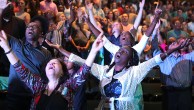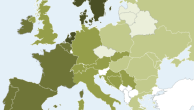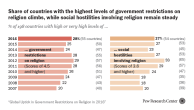Most people across Central and Eastern Europe say they believe in evolution – that is, that humans and other living things have evolved to their present state over long periods – rather than that humans have existed in their current form since the beginning of time. And those who believe in evolution are more likely to say that it occurred through natural processes that favored organisms with beneficial traits, rather than under the guidance of a supreme being.
Still, while most people believe in evolution, there is no regional consensus on the broader question of whether scientific and religious worldviews are at odds with one another. In nearly half of the countries surveyed, most respondents see science and religion as generally in conflict, while in the other countries opinion is either closely divided or most people say they don’t see a conflict between the two.
Most say humans and other living things have evolved over time
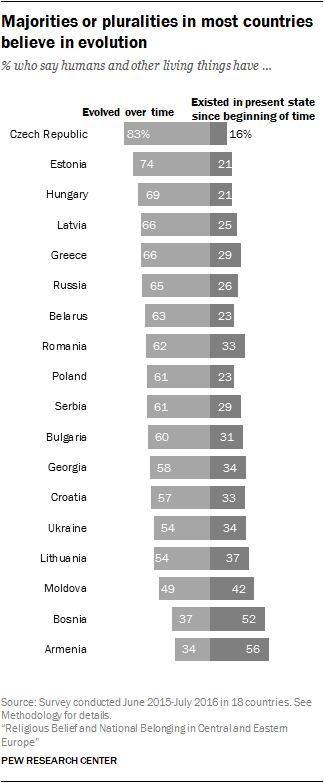
In most of the countries surveyed, majorities say humans and other living things have “evolved over time,” as opposed to having existed in their present state since the beginning of time.
Acceptance of the scientific theory of evolution is most common in the Czech Republic (83%) and Estonia (74%), which have large populations of religiously unaffiliated people. Acceptance also is widespread in Hungary, Latvia, Greece and Russia.
People are least likely to believe in evolution in Armenia and Bosnia, where roughly half or more say humans and other organisms have existed in their current forms since the beginning of time.
Overall, religious “nones” are more likely than those who are affiliated with a religious group to believe in evolution. And people who say religion is very important in their lives are more likely than others to reject evolution.
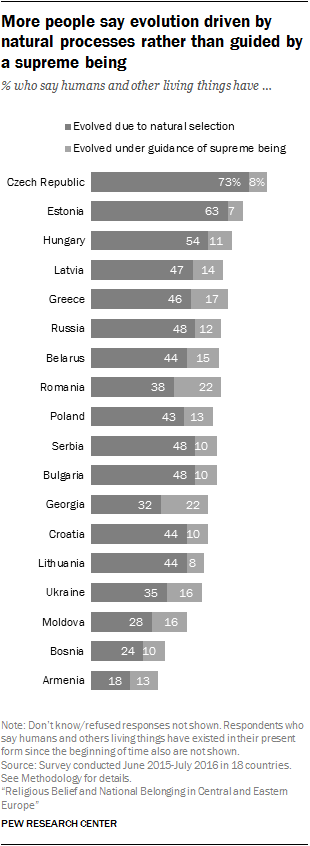
Across the region, Orthodox Christians and Catholics are about equally likely to say humans and other living things have evolved over time. And belief in evolution is generally about as common in Orthodox-majority countries as in other countries.
Younger people (ages 18 to 34) and those with college degrees are significantly more likely to believe in evolution than older people and those with less formal education.
Respondents who say they believe in evolution were asked a follow-up question: Do you believe evolution was guided by a supreme being, or do you instead believe that living beings evolved through natural processes such as natural selection? In almost every country surveyed, people who believe in evolution are much more likely to say natural selection was the driving force.
By comparison, fully a quarter of Americans (25%) say humans have evolved under the guidance of a supreme being, just slightly lower than the share who believe in evolution due to natural processes (33%). About a third of U.S. adults say they do not believe in evolution.
At least a third in most countries say science and religion are generally in conflict
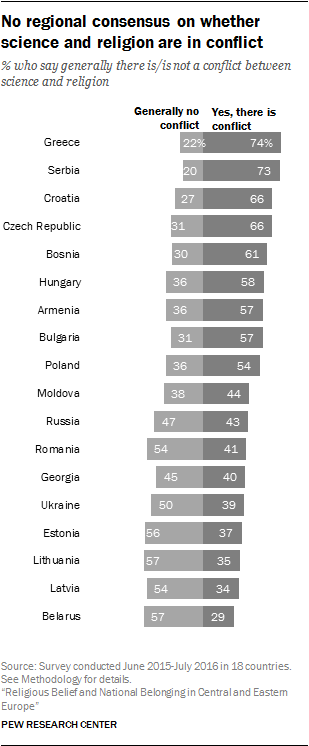
There is no consensus in the countries surveyed on the question of whether science and religion are generally in conflict. In nine of the 18 countries surveyed, at least half of respondents say there is a conflict between science and religion.
Generally, respondents in Orthodox-majority countries are less likely than people in Catholic-majority nations to say religion and science are in conflict. Across the 10 Orthodox countries surveyed, the median share saying there is such a conflict is 44%, compared with 56% in the four Catholic-majority countries.
In the Baltic countries, relatively few people say science and religion are in conflict, including 34% in Latvia and 35% in Lithuania.
In some places, such as the United States, highly religious people are less likely than others to say there is a conflict between religion and science. While this is true in a few countries in Central and Eastern Europe (Poland, Ukraine, Hungary and Bosnia), in other countries surveyed there are no significant differences between the views of highly religious and less religious respondents on this issue.
Few say science will eventually explain everything
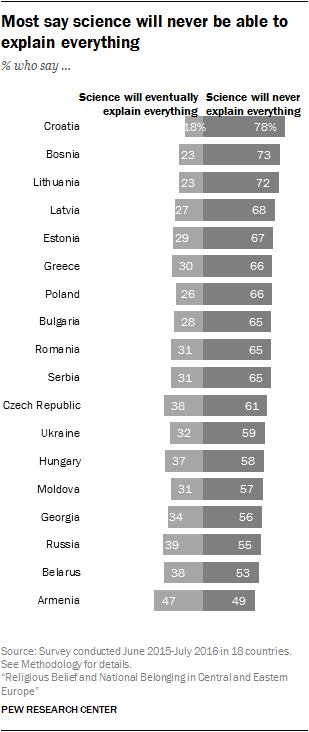
Most people in the region see limits to the reach of scientific explanations. When asked to choose between two statements – that science will eventually “provide an explanation for everything,” or that science “will never be able to explain everything” – clear majorities choose the latter statement in almost every country surveyed.
Overall, Catholics are less likely than Orthodox Christians or religiously unaffiliated adults to say science will one day provide explanations for everything. No more than a third of Catholics say this in any country surveyed. In contrast, religiously unaffiliated adults are more likely to express faith in science’s reach. For example, more than half of religiously unaffiliated adults in Ukraine (65%) and Russia (55%) say science will eventually provide an explanation for everything.


